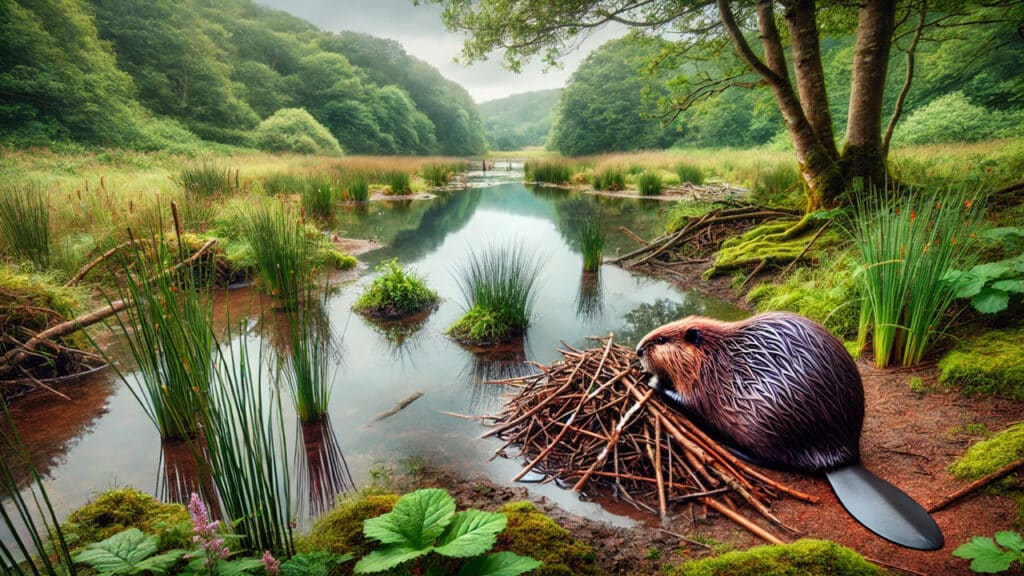The following blog is a summary of the article Research backs beavers in fight against flooding and droughts by the Devon Wildlife Trust, published online on May 29, 2024. To read the full article, click here.

A decade-long study conducted by the University of Exeter and Devon Wildlife Trust has highlighted the positive impact of beavers on flood and drought management in Devon, England. After being hunted to extinction 400 years ago, beavers were rediscovered living on the East Devon River Otter in 2014. It is unclear how the beavers found their way back, but their legal right to stay was granted in 2020. Forming close-knit family groups, these beavers now inhabit 20 family territories along the river. Beavers are also known as “ecosystem engineers”, as they reshape the landscape to suit their needs by constructing dams. These dams inevitably result in the creation of wetlands, which are prime habitat for the beavers, and an excellent form of flood control for humans. Why? Well, wetlands are able to store large amounts of water, which decreases flooding risks for the surrounding areas.
The research, which combined drone imagery with water depth monitoring, revealed that beaver-created wetlands in four territories stored over 24 million liters of water, equivalent to around 10 Olympic-sized swimming pools. These wetlands help mitigate flooding by reducing storm flows by 30% during heavy rainfall, offering protection to flood-prone communities downstream. Moreover, during droughts, such as the one in 2022, beaver wetlands released stored water slowly, maintaining river flows and creating “green oases” that support various wildlife species.
To further support the benefits of beavers, Devon Wildlife Trust is advocating for the expansion of beaver habitats and is working with two local, East-Devon based landowners through the Department of Environment, Food, and Rural Affairs (Defra)-administered Farming in Protected Landscapes Grant Scheme. Surrendering farmland to the beavers results in a loss of income for farmers, as they lose precious grazing and crop space. This initiative provides financial assistance to farmers, compensating them for that loss. The Farming in Protected Landscapes Grant Scheme is currently only working with Clinton Devon Estates and Bicton College, who are making space for beaver wetlands on their land. The resulting wetlands not only support diverse wildlife but also offer unique learning opportunities for students, as seen at Bicton College, where portions of their working dairy farm were turned into beaver habitat.
Devon Wildlife Trust next goal is to make this innovative “green finance” approach available to more farmers and landowners who are open to transitioning some of their land to wetland habitat. Ed Parrish, the Director of Land-based Operations at Bicton College, supports that goal, stating ” We would like to see this type of funding expanded so that other landowners can be rewarded for the benefits they are providing to the environment when they allow beavers to create wetland habitats.” Dr. Holly Barclay, the Trust’s Green Finance Officer, emphasized the importance of these natural solutions in addressing climate-related challenges such as increasing floods and droughts. The Devon Wildlife Trust aims to develop new funding streams that reward land managers for the societal benefits provided by beaver wetlands, highlighting the cost-effectiveness of these nature-based solutions in mitigating the effects of severe climate events.
